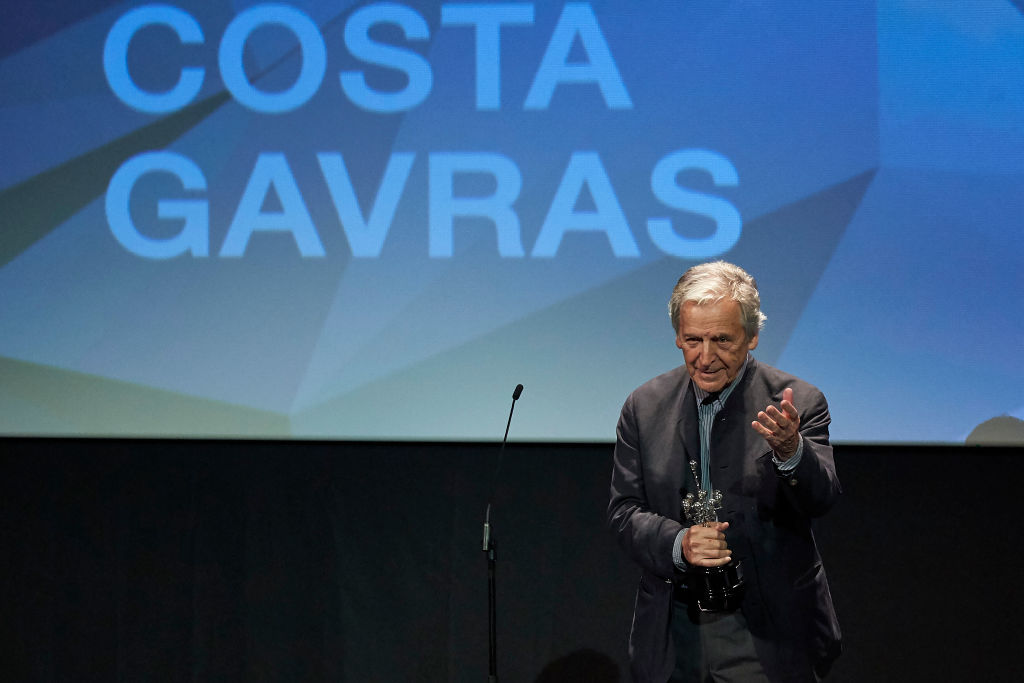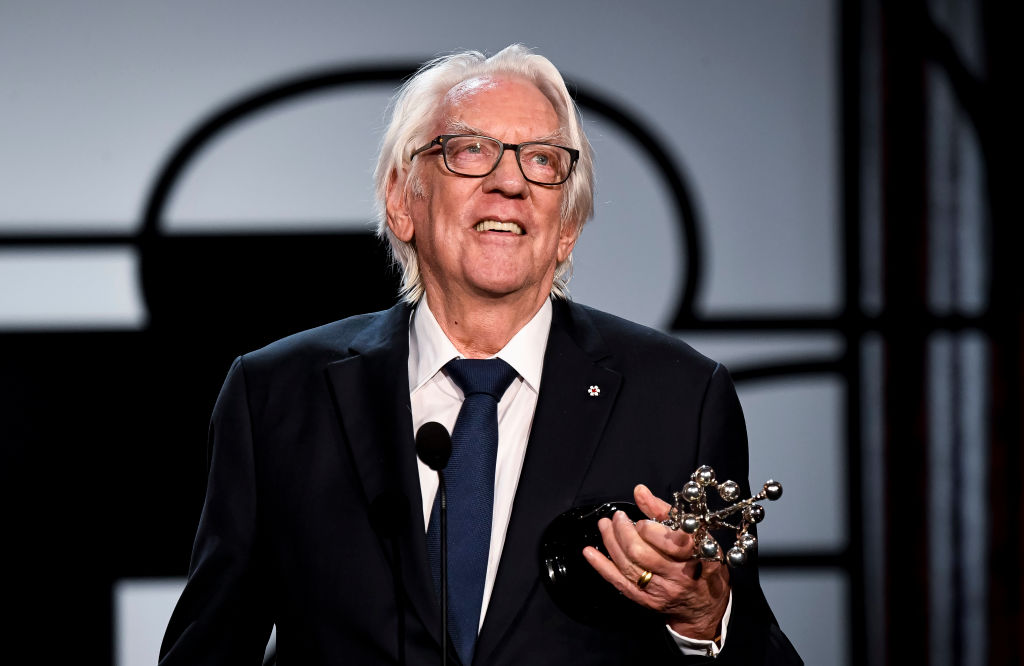
- Festivals
Sutherland, Costa-Gavras and Cruz Honored at San Sebastian
French filmmaker of Greek origin, Constantin Costa-Gavras (Loutra-Iraias,1933) received the first Donostia Award at the 67th edition of the San Sebastian Festival, which has paid tribute to one of the leading creators of social and political films.
The filmmaker picked up the award in a gala at the Victoria Eugenia Theater, before the screening of his latest film, Adults in the Room, an adaptation of the former Greek Finance Minister Yanis Varoufakis’s autobiography. The award recognized the work of the author of films such as Z, Missing or State of Siege. Costa-Gavras accepted it with a passionate speech stating, ‘It is a great honor to receive this award, precious to us, the filmmakers.’
Many of the 20 titles directed by Costa Gavras have served to highlight political issues, be they dictatorships, political purges, racism or disasters caused by the financial world. But above all, the main subject of his filmography is that of the individual faced with the implacable machinery of an ominous and devastating political power.
“I fled from Greece because all that was offered to the young people of my social class was a life of submission to a theocratic democracy”, he said. “As an immigrant, France allowed me to overcome my craziest dreams. My ‘Greek’ feeling came back to me when the colonels took power. The expression of my personal resistance was “Z”. Ten years ago, the Greek economic crisis plunged the country back into the same situation that made me flee the first time. And that, of course, made me want to express my anger with Adults in the Room again.”

Introduced as a “legend of cinema,” Donald Sutherland received the second of this year’s Donostia awards. The Canadian actor picked up the prize at a ceremony that paid tribute to a prolific career spanning five decades, before the screening of his latest film The Burnt Orange Heresy (A Masterpiece), a film noir directed by Giuseppe Capotondi, with a cast that includes Mick Jagger, Claes Bang, and Elizabeth Debicki.
Able to shine with the same intensity as a protagonist or as a supporting actor, Sutherland ( a two-time Golden Globe winner from Saint John, Canada), has embodied dozens of characters with great talent regardless of genre, from drama to war cinema, thrillers, terror or science fiction. He was a private detective in Klute (Alan J. Pakula, 1971), which earned Jane Fonda a Golden Globe; he became a seducer for Federico Fellini’s Casanova (1976), two years before e was devoured by body snatchers in the Philip Kauffman film, Invasion of the Body Snatchers. And he was put face to face with the perverse fascist Attila Mellanchini in the immortal historical drama Novecento by Bernardo Bertolucci (1976).
“It is such a pleasure to be in this city, where I feel at home, and an honor to receive this award,” said the actor while the audience in the Kursaal Auditorium gave him a standing ovation.
With over 150 films under his belt, Sutherland confessed that he never aspired to be more than a theater actor. His greatest talent may be his ability to make the complex, simple, and the simple complex, as he did in Don’t Look Now, the mysterious Nicolas Roeg’s movie. One of his most famous in recent times is President Snow, the main villain of The Hunger Games. Right now, we can see him in Ad Astra, alongside Brad Pitt, Tommy Lee Jones, and Liv Tyler.
“These characters have given me information and freedom to have lives that I would not have dared to live, the actor said. “That’s why looking for the next character is my passion,” he added.

Who really felt at home was Penélope Cruz, the recipient of the third Donostia Award of this edition. Cruz, the second Spanish actress to receive the award, after Carmen Maura (2013), participated in Zinemaldía in three other occasions: with Bigas Luna, Sergio Castellito and Fernando León de Aranoa. But this time was special – not only was she honored with a lifetime award by the festival, but she was also featured on the official poster and one of the protagonists of Olivier Assayas’ Wasp Network which screened after the Award Ceremony. Cruz was very excited and grateful to receive this award from her great friend, Bono, the lead singer of U2.
30 years have passed since, as a dancer of the Spanish National Conservatory, Cruz appeared in a video clip of the musical group Mecano. IN 1992, at 18 years old, she emerged like a cyclone from her first film, Jamón, Jamón ‘(1992). That same year she was part of the group of young actors who starred in Fernando Trueba’s Belle Epoque, winner of the Oscar for best foreign film.
After showing her aptitude for comedy in films such as Alegre ma non troppo’ (1994) by Fernando Colomo and Todo es mentira (1994), by Álvaro Fernández Armero, she took another definitive step in her career when Pedro Almodóvar hired her for Carne Trémula (1997), beginning one of the most fruitful artistic relationships between a director and an actress. “Pedro is part of my family. The level of connection we have is unequaled, we read our minds, we can never fool ourselves, which is a great advantage when we work together,” said the actress at the press conference prior to the award ceremony.
In 1997 Penélope Cruz also filmed Abre los ojos with Alejandro Amenábar and later starred in director Cameron Crowe’s version of the film, Vanilla Sky (2001), launching her career in Hollywood. But it was with Woody Allen’s Vicky Cristina Barcelona (2008) that earned her international recognition, bringing her Golden Globe nomination, an Oscar and a Bafta award for her role as best supporting actress.
To those accolades, she has added three Goya awards (The Girl of Your Eyes, Vicky Cristina Barcelona and Volver). “Cinema has taught me a lot about myself, and about human behavior, something that fascinates me because you never get to the bottom when it comes to knowing a human being and its motivations,” said the actress, who, at 45, has become the youngest Spanish actor to receive this award.

